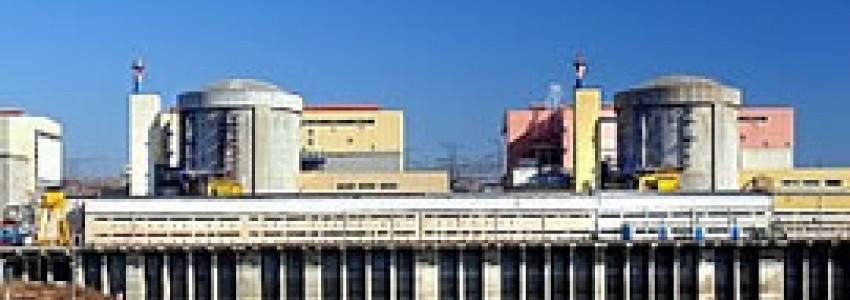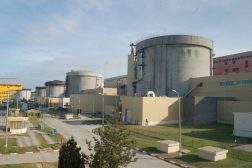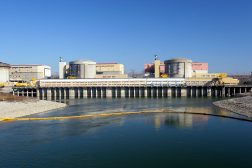Against the allegations of Greenpeace Romania based on a studied ordered by the association, Societatea Nationala Nuclearelectrica SA (“SNN”) states the following:
- Cernavoda NPP Units 3 and 4 project is necessary both for the security of the Romanian energy system on the long term, as well as for the growth of the company and capitalization of existing assets. The feasibility study concluded by Ernst&Young in 2012 states the following: “The project is feasible: the NPV of the shareholders’ investment is positive, the NPV of the project’s cash flow is positive, as well, the shareholders’ IRR is greater that the estimated WACC”.
- Any study order by an entity whose interest is the elimination of nuclear power production cannot represent the basis of an objective, relevant and trustworthy opinion. Moreover, the study states from the beginning that it doesn’t offer any guarantee as to the accuracy and exhaustive character of the data, as it is concluded based on a comparison of technologies and costs which do not reflect at all the technology used at Cernavoda or the Romanian market perspective.
- Units 3 and 4 project will replace a series of production capacities in 2020-2025, as it is the only project which fully complies with the European energy strategy objectives and targets in terms of environment protection, energy security and diversification of sources for a balanced energy mix. When a major investment project complies with all the above mentioned objectives and the development of the internal production sources is an objective of the European Commission, assumed by Romania, the association of this project with allegations such as “considerable economic risk” and “the lack of flexibility of the nuclear energy”, considering the fact that the assumed decarbonization strategy requires precisely a stable energy source, with base load production, in order to guarantee the stability of the national energy system, represents a lack of knowledge with respect to the economic context and the energy policy.
- Romania has an integrated nuclear energy production cycle and highly qualified workforce and, in this context, the completion of the project is perfectly just from an economic and strategic point of view. Any state which owns such advantages, capitalizes them, not wastes them.
- The alleged financing model presented in the study ordered by Greenpeace is not relevant as long as the invoked cost model is used by operators on different markets, with different evolutions and different technologies. Moreover, the study clearly states: “The financial model for Cernavoda nuclear power plant is based on data regarding the estimated operation costs for an EPR reactor” (quotation from the study – page 18). The invoked figures represent a mere speculation, which do not take into consideration the technology used and the reality of the Romanian market on the medium and long term for the establishment of a strike price, in case the contract for difference is implemented. The same mechanism applied by two states will have different entry data and, as a consequence, different outcomes.
- SNN may consider any study regarding the impact of the construction of Units 3 and 4 if they are commissioned by an independent party, if they are objective and not concluded based on forced correlations between different technologies and market context. An analysis of the operation costs of different technologies (EPR reactor in the case of the Greenpeace study), in different market contexts cannot supply a correct analytical overview of the operation costs of a different technology (CANDU in the case of the Cernavoda Project) in a different market context.
- The reaction of Greenpeace is a strategy to alarm the population with regards to additional costs to the electricity bill with the purpose of justifying their anti-nuclear position. Both the study and the presented arguments do not reflect the economic and financial reality of Units 3 and 4 project.
- All the available comparative data support, with solid arguments based on extensive analysis, not circumstantial ones as in the case of the study ordered by Greenpeace Romania, that the nuclear power is one of the cheapest energy sources compared to other technologies. The operation data of SNN, as well as the price of the nuclear fuel, reflected in the production cost, support these analysis as SNN is one of the constant producers who supplies energy on the regulated market in order to ensure an affordable price for the end consumers.
Daniela Lulache
CEO










